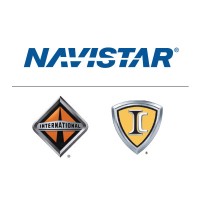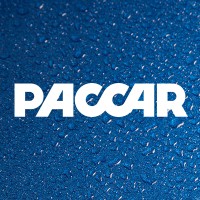
Navistar Inc
We were Navistar, but we are getting back to our roots as International. Follow us at International and join us on the road ahead.



We were Navistar, but we are getting back to our roots as International. Follow us at International and join us on the road ahead.

PACCAR is a global technology leader in the design, manufacture and customer support of premium light-, medium- and heavy-duty trucks under the Kenworth, Peterbilt and DAF nameplates. PACCAR also designs and manufactures advanced diesel engines, provides financial services, information technology, and distributes truck parts related to its principal business. Kenworth Truck Company builds premium commercial vehicles for sale in the U.S., Canada, Mexico and Australia and for export throughout the world. Peterbilt Motors also designs, manufactures and distributes premium commercial vehicles in the US and Canada. DAF Trucks manufactures trucks in the Netherlands, Belgium, Brasil and the United Kingdom for sale throughout Western and Eastern Europe, and export to Asia, Africa, North and South America. PACCAR Parts operates a network of parts distribution centers offering aftermarket support to Kenworth, Peterbilt and DAF dealers and customers around the world. Aftermarket support includes customer call centers operating 24 hours a day throughout the year and technologically advanced systems to enhance inventory control and expedite order processing. PACCAR Financial Services provides finance, lease and insurance services to dealers and customers in more than 100 countries including a portfolio of more than 175,000 trucks and trailers and total assets in excess of $12 billion. The group includes PACCAR Leasing, a major full-service truck leasing company in North America, with a fleet of over 39,000 vehicles. Environmental responsibility is one of PACCAR’s core values. The company regularly develops new programs to help protect and preserve the environment and PACCAR has established ambitious goals to further reduce emissions and enhance fuel efficiency in its truck models.
Security & Compliance Standards Overview












No incidents recorded for Navistar Inc in 2025.
No incidents recorded for PACCAR in 2025.
Navistar Inc cyber incidents detection timeline including parent company and subsidiaries
PACCAR cyber incidents detection timeline including parent company and subsidiaries
Last 3 Security & Risk Events by Company
Angular is a development platform for building mobile and desktop web applications using TypeScript/JavaScript and other languages. Prior to versions 19.2.16, 20.3.14, and 21.0.1, there is a XSRF token leakage via protocol-relative URLs in angular HTTP clients. The vulnerability is a Credential Leak by App Logic that leads to the unauthorized disclosure of the Cross-Site Request Forgery (XSRF) token to an attacker-controlled domain. Angular's HttpClient has a built-in XSRF protection mechanism that works by checking if a request URL starts with a protocol (http:// or https://) to determine if it is cross-origin. If the URL starts with protocol-relative URL (//), it is incorrectly treated as a same-origin request, and the XSRF token is automatically added to the X-XSRF-TOKEN header. This issue has been patched in versions 19.2.16, 20.3.14, and 21.0.1. A workaround for this issue involves avoiding using protocol-relative URLs (URLs starting with //) in HttpClient requests. All backend communication URLs should be hardcoded as relative paths (starting with a single /) or fully qualified, trusted absolute URLs.
Forge (also called `node-forge`) is a native implementation of Transport Layer Security in JavaScript. An Uncontrolled Recursion vulnerability in node-forge versions 1.3.1 and below enables remote, unauthenticated attackers to craft deep ASN.1 structures that trigger unbounded recursive parsing. This leads to a Denial-of-Service (DoS) via stack exhaustion when parsing untrusted DER inputs. This issue has been patched in version 1.3.2.
Forge (also called `node-forge`) is a native implementation of Transport Layer Security in JavaScript. An Integer Overflow vulnerability in node-forge versions 1.3.1 and below enables remote, unauthenticated attackers to craft ASN.1 structures containing OIDs with oversized arcs. These arcs may be decoded as smaller, trusted OIDs due to 32-bit bitwise truncation, enabling the bypass of downstream OID-based security decisions. This issue has been patched in version 1.3.2.
Suricata is a network IDS, IPS and NSM engine developed by the OISF (Open Information Security Foundation) and the Suricata community. Prior to versions 7.0.13 and 8.0.2, working with large buffers in Lua scripts can lead to a stack overflow. Users of Lua rules and output scripts may be affected when working with large buffers. This includes a rule passing a large buffer to a Lua script. This issue has been patched in versions 7.0.13 and 8.0.2. A workaround for this issue involves disabling Lua rules and output scripts, or making sure limits, such as stream.depth.reassembly and HTTP response body limits (response-body-limit), are set to less than half the stack size.
Suricata is a network IDS, IPS and NSM engine developed by the OISF (Open Information Security Foundation) and the Suricata community. In versions from 8.0.0 to before 8.0.2, a NULL dereference can occur when the entropy keyword is used in conjunction with base64_data. This issue has been patched in version 8.0.2. A workaround involves disabling rules that use entropy in conjunction with base64_data.